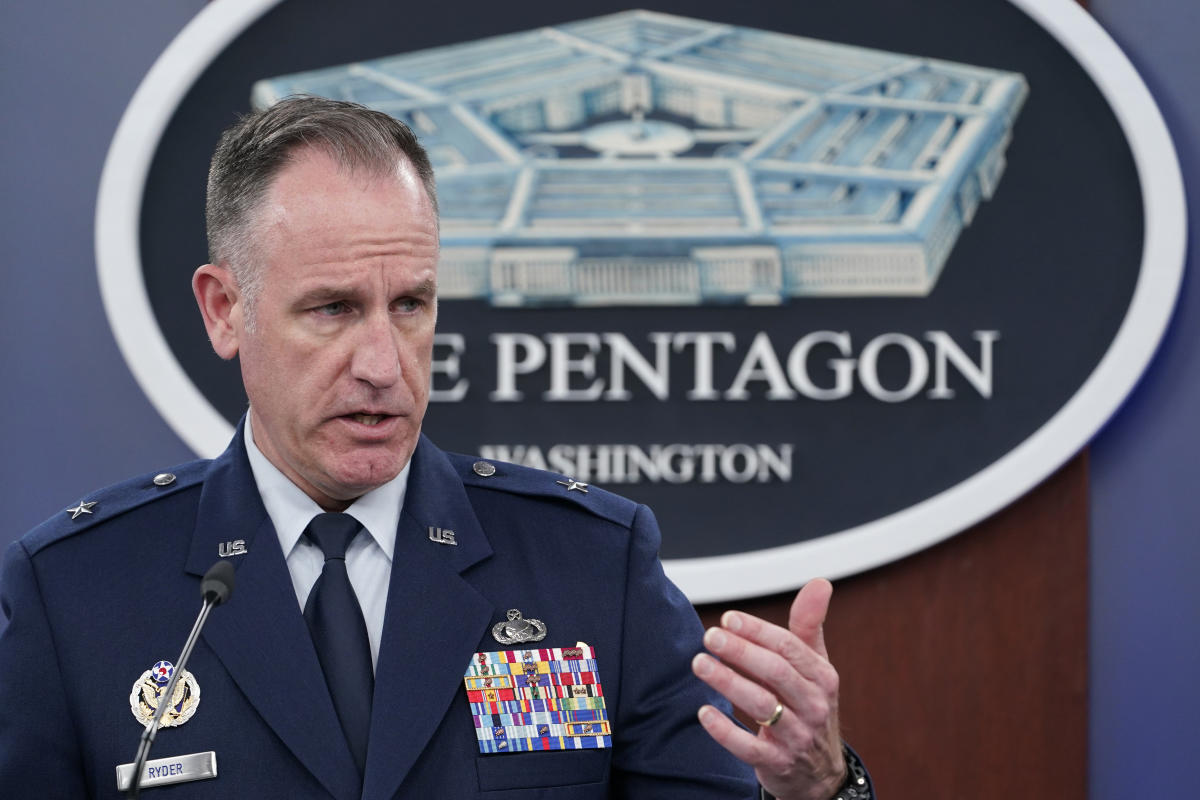WASHINGTON (AP) — Saudi Arabia has shared information with US officials suggesting Iran could be preparing for an imminent attack on the kingdom, three US officials confirmed on Tuesday.
The heightened concern over a possible attack on Saudi Arabia as the Biden administration criticizes Tehran for its crackdown on widespread protests and condemns it for sending hundreds of drones – as well as technical support – to Russia for use in its war in Ukraine.
“We are concerned about the threat assessment and remain in constant contact with the Saudis through military and intelligence channels,” the National Security Council said in a statement. “We will not hesitate to act in defense of our interests and partners in the region.”
One of the officials who confirmed the intelligence sharing described it as a credible threat of an attack “within 48 hours”. No US embassy or consulate in the region has issued any warnings or guidelines to Americans in Saudi Arabia or elsewhere in the Middle East based on the intelligence. The officials were not authorized to comment publicly and spoke on condition of anonymity.
When asked about intelligence reports shared by the Saudis, Brig. Gene. Pat Ryder, the Pentagon’s press secretary, said US military officials are “concerned about the threat situation in the region”.
“We are in regular contact with our Saudi partners about the information they can provide in that area,” Ryder said. “But what we have said before, and I repeat, is that we reserve the right to protect and defend ourselves wherever our troops are serving, whether in Iraq or elsewhere.”
The Wall Street Journal reported on Tuesday for the first time about the sharing of the information by the Saudis.
The US and Saudis accused Iran in 2019 of being behind a major attack in eastern Saudi Arabia, which halved the oil-rich kingdom’s production and soared energy prices. The Iranians denied that they were behind the attack.
The Saudis have also been repeatedly hit in recent years by drones, missiles and mortars launched by Iran-backed Houthi rebels in Yemen in retaliation for Saudi involvement in the civil war that began there in 2014. Saudi Arabia formed a coalition to fight the Houthis in 2015 and has been criticized internationally for its airstrikes, which have killed dozens of civilians.
In recent weeks, the Biden administration has imposed sanctions on Iranian officials for the brutal treatment of protesters following the death of 22-year-old Mahsa Amini in September while he was in custody by Iranian security forces. The government has also hit Iran with sanctions for supplying drones to Russia for use in the war in Ukraine.
At least 270 people were killed and 14,000 arrested during the protests, according to the Human Rights Activists group in Iran. The demonstrations have continued, even as the feared paramilitary Revolutionary Guards have warned young Iranians to stop.
Relations between the US and Saudi Arabia have also been tense after the Riyadh-led alliance of oil-producing countries, OPEC+, announced in October that it would cut production by 2 million barrels per day from November.
The White House has said it is reviewing its relationship with the Saudis over the move. The government said the production cut is effectively helping another OPEC+ member, Russia, to fill its treasury as it continues its war in Ukraine, now in its ninth month.
White House National Security Council spokesman John Kirby reiterated Tuesday that the government remains concerned that Iran may also supply Russia with surface-to-surface missiles.
“We haven’t seen that concern materialize, but it’s a concern we have,” Kirby said.
Even as the US and others express concern over nefarious Iranian action, the administration has not ruled out the possibility of canceling the 2015 nuclear deal with Iran, negotiated by the Obama administration and scrapped in 2018 by the Trump administration. to breathe new life into.
US special envoy to Iran Robert Malley said on Monday the government is currently not focused on the deal, which has stalled since August.
Still, Malley declined to declare the deal dead, saying the government made “no apologies” for “trying to do everything it can to prevent Iran from acquiring a nuclear weapon.”
The pact, known as the Joint Comprehensive Plan of Action, or JCPOA, would provide Tehran billions of dollars in sanctions relief in exchange for the country agreeing to reduce its nuclear program to the limits set by the 2015 agreement. It includes limits on enrichment and how much material Iran can store and limits the operation of advanced centrifuges needed for enrichment.

